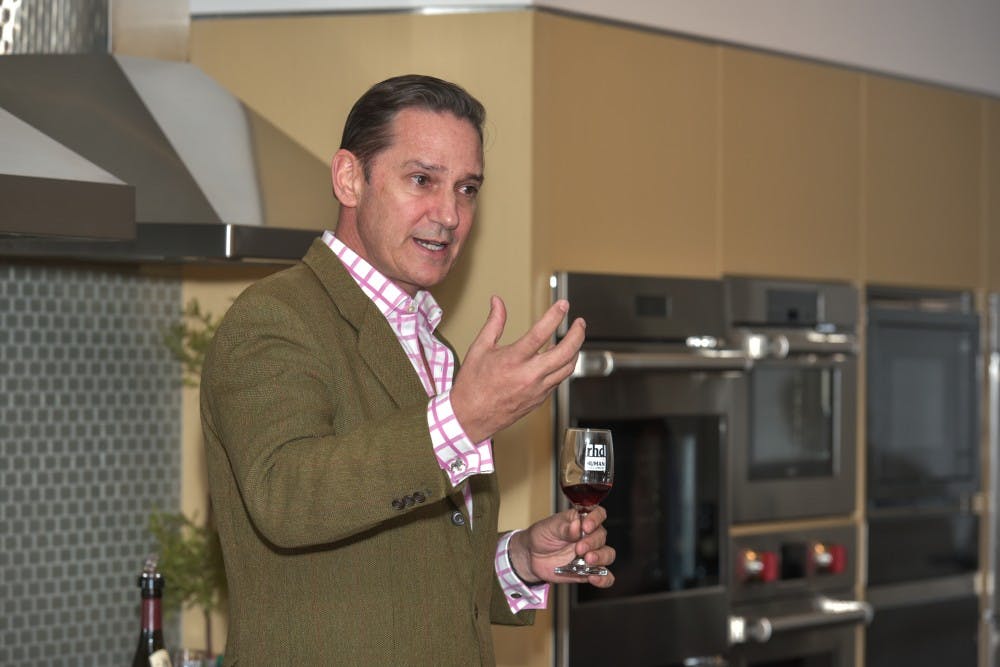
In a campus dominated by on-campus recruiting, and accustomed to drinking boxed wine out of red Solo cups, one Wharton graduate managed to turn his back on the finance world — and make a living off the land.
After working for Bain & Company in London for just under two years, 1990 Wharton MBA graduate Anthony Hamilton-Russell decided to leave behind his promising career in favor of winemaking.
“For me, there wasn’t enough duty in it all,” he said, reflecting on his decision to leave Bain. “You can have the intellectual capacity and skills to do the job really well,” he admitted, “but you also have to have the emotional makeup for the environment and pursuit. Otherwise, you’ll never be fulfilled or happy.”
Russell said he found fulfillment through returning home.
Like many young South Africans in the 1980s, Russell chose to leave his native country during the era of apartheid. The soon-to-be Wharton student left home to avoid being drafted into national service, which he said would amount to “[suppressing] internal dissent.”
After attending Wharton and then working in London, Russell decided to return home to South Africa to take over the vineyard his father started in 1981. He called the years following 1990 a time of “enormous positive thinking and change” in his country.
Located near the village of Hermanus in South Africa’s Cape of Good Hope, Hamilton Russell Vineyards specializes in chardonnay and pinot noir.
Russell described his preference for small business as opposed to the corporate world.
“I find it hugely stimulating, versus the more narrow look you have on things either in baking or consulting,” Russell said, with a passion in his voice.
He said his decision to change career trajectories was emotional, rather than rational — and that it had nothing to do with money.
But clearly for Russell, the switch has paid off.
He described the expansion of Hamilton Russell Vineyards, praising its “healthy and steady ongoing growth.” He said the business is 46-times the size it was in 1991. The business also expanded physically with the purchase of two adjacent properties.
Reminiscing on his time in Philadelphia, Russell noted that he was “very keen on Wharton and very lucky to be offered a place there.” He then praised the competitive spirit of the school — an aspect of the environment that has received recent criticism.
“Wharton itself was hugely stimulating, not just in terms of course content, but also in terms of being surrounded by numerous other very driven, very ambitious, and strong personalities,” he said.
The competitive nature, Russell said, helps to “bring out the best in you,” and prepares students for the realities of the business world.
When asked what advice he has for current Wharton students, Russell balanced his optimism with a realistic outlook.
“You’ve got to have money; one’s got to have enough to pay for one’s education, and one has to have enough to get by,” he admitted.
However, the entrepreneur concluded, “Choose a career that fits you emotionally, as well as your abilities and skills.”
“Fulfillment comes when you pursue a good emotional fit,” Russell advised. “And that is not often the highest paying job that confronts you as you graduate. Don’t just follow the money trail.”
The Daily Pennsylvanian is an independent, student-run newspaper. Please consider making a donation to support the coverage that shapes the University. Your generosity ensures a future of strong journalism at Penn.
Donate



